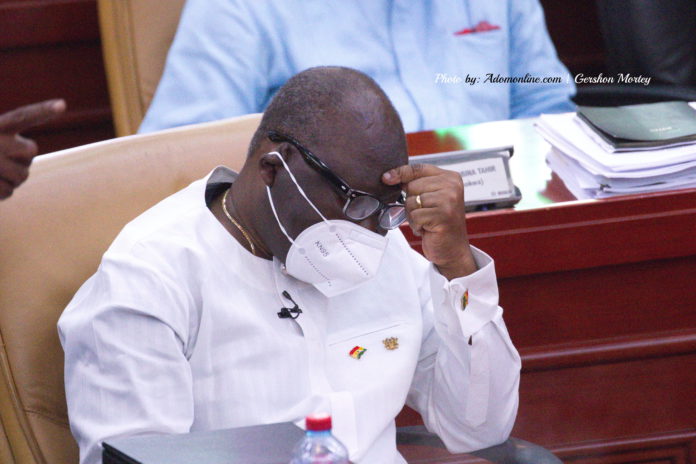
Ghana’s public debt stock shot up by ¢2.7 billion to hit ¢344.5 billion in November 2021, the January 2022 Bank of Ghana Summary of Economic and Financial Data has revealed.
This pushed the debt to Gross Domestic Product (GDP) to 78.4% and further emphasised that the country’s debt has reached disturbing levels.
¢2.7 billion fresh loans, largely domestic debt, was added to the total debt in October 2021 and November 2021.
Even though government had indicated that it will borrow just about a billion cedis in the final quarter of 2021, the data from the Central Bank suggest otherwise.
According to the data from the Bank of Ghana, the domestic debt went up to ¢179.4 billion in November 2021, from ¢178.1 billion recorded in September 2021. This is equivalent to 40.8% of GDP.
The continuous borrowing by government on the domestic market is crowding out the private sector from access to funds, and consequently keeping lending rates relatively high.
The external debt remained unchanged at $27.9 billion in November 2021, from September, 2021. This is however equivalent to 37.6% of GDP.
However, the cedi component of the external debt shot up because of the decline in the value of the cedi to dollar during the period.
On the other hand, the financial sector resolution bond stayed same at ¢14.9 billion in November 2021, equivalent to 3.4% of GDP.
Investors see value in Ghana’s beaten-down Bond
Meanwhile, Bloomberg says foreign investors still see value in Ghana’s bonds.
This is coming after the yield on the country’s international debt instruments shot up, few weeks ago. It has since retreated.
Analysts believe there will be a continuation in the performance of the bonds if the fiscal targets set by the government are being met.
“There will be a continuation in the performance of the bonds if we can see the fiscal targets set by the government are being met,” said Joe Delvaux, a money manager at Amundi in London. “Certainly the intentions are good and it’s one of the reasons why the bonds have been rallying, but it will come down to the question: can they deliver?”.
“There has been engagement from a variety of clients, which I think shows investor willingness to re-engage with the trade here,” said Calvyn Kirsten, a London-based emerging markets trader at JPMorgan Chase Bank. “The market has gone very quickly from pricing a severely distressed scenario. Once the finance ministry does what it says, then that should be taken off the table.”





